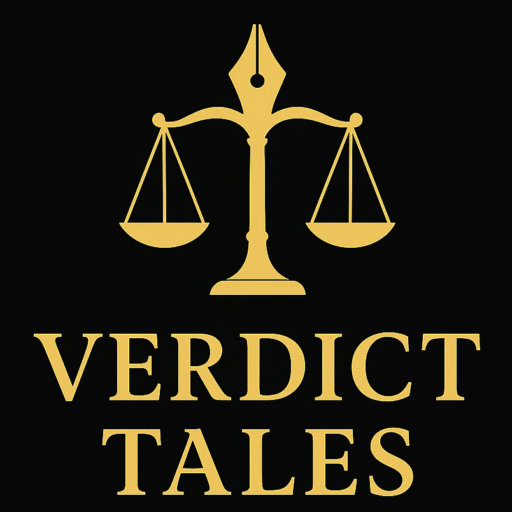Welcome to the Azerbaijan v. Armenia CERD Case 🌐
introduction
On November 12, 2024, the International Court of Justice (ICJ) rendered its ruling on Armenia’s preliminary objections in Application of the International Convention on the Elimination of All Forms of Racial Discrimination (Azerbaijan v. Armenia). Alleging Armenia breached the CERD by discriminatory policies against Azerbaijanis, Azerbaijan filed the action in 2021. Armenia objected three times generally to the ICJ’s jurisdiction. This blog looks at the result of these challenges, therefore clarifying the Court’s jurisdictional conclusions ([2024] ICJ Judgment, para 1).
Background of the Case 🏆
Former Soviet republics Azerbaijan and Armenia have a history of strife over the Nagorno-Karabakh territory that spans wars in the 1990s and 2020. Under CERD Articles 2–7, Azerbaijan’s 2021 application claimed Armenia followed a decades-long strategy of racial discrimination involving ethnic cleansing under CERD Articles 2–7 (paras 17–18). Both states are CERD parties, Armenia from July 23, 1993, Azerbaijan since September 15, 1996—with jurisdiction based on CERD Article 22 (paras 26–27). Armenia objected to the Court’s jurisdiction ratione temporis, (time-based) and ratione materiae, (subject-matter) para 28.
Put Image HerePicture of the ICJ Peace Palace situated in The Hague.Alter Text: The Peace Palace, home of the ICJ, where Armenia’s preliminary objections in Azerbaijan v. Armenia were decided upon.Image caption: The Peace Palace, where the ICJ decided on Armenia’s CERD case’s objections.
Armenia expressed three preliminary objections to restrict the jurisdiction of the ICJ:
Armenia said the Court lacked jurisdiction over claims for activities prior to September 15, 1996, when CERD entered force between the parties, or that such claims were inadmissible (paras 29–35).
Armenia argued that Azerbaijan’s assertions about the installation of landmines and booby traps were outside CERD’s purview since they did not amount to racial discrimination (paras 65–67).
Armenia claimed that under CERD, assertions of environmental damage—such as deforestation and water mismanagement—did not constitute racial discrimination (paras 78–83).
Arguing their validity or should be postponed to the merits phase, Azerbaijan asked the Court to overlook all objections (paras 20–21).
Ruling on Preliminary Objections: ICJ
The ICJ answered every argument and rendered a complex ruling:
First Objection: Held Jurisdiction Ratione Temporalis
Declaring it lacked jurisdiction over claims for activities between 23 July 1993 (Armenia’s CERD accession) and 15 September 1996, the Court maintained Armenia’s objection (para 63). Important observations:
Jurisdiction under CERD Article 22 relates not to when Armenia joined CERD but rather to when obligations entered effect between the parties (15 September 1996).
Non-Retroactivity: Although Azerbaijan could not use responsibility for acts when it was not a CERD party, Armenia’s responsibilities did not generate any retroactivity concern (paras 44–51).
For claimed continuing or composite activities (e.g., ethnic cleansing), accountability would only apply post-15 September 1996; pre-1996 facts could be taken into account (paras 56–62).
Result: The Court maintained the objection by 14 votes to 3, therefore stopping pre-1996 claims’ procedures (para 101(1).
Second Objection: Booby Traps and Landmines Rejected
Armenia’s protest was dismissed by the ICJ as “without object,” para 77. Main points:
Azerbaijan’s contention is that evidence of ethnic cleansing (paras 68–74) rather than landmine/booby trap placement constitutes a separate CERD breach.
Court Perspective: Given Azerbaijan’s allegation concentrated on ethnic cleansing (beyond CERD’s purview), the objection had no objective. Evidence would be evaluated under the merits level (paras 75–76).
The objection was turned down by 16 votes to 1 (para 101(2)).
Third Objection: Environmental Damage (Upheld)
The Court maintained Armenia’s objection, deciding it lacked jurisdiction over environmental damage claims (para 100). Main conclusions:
CERD Scope: Although Azerbaijan’s claims—such as deforestation, water mismanagement—were commercially driven or indiscriminate, not based on ethnic origin—environmental harm might theoretically constitute racial discrimination (paras 95–97).
Ethnic Azerbaijanis were absent from the impacted regions under Armenian rule (1994–2020), therefore contradicting assertions of deliberate discrimination (paras 98–99).
Result: The objection was maintained by 12 votes to 5, perparating 101(3).
4. General Authority
Subject to the maintained objections, the ICJ confirmed its jurisdiction under CERD Article 22 unanimously (para 101(4).
Consequences for the Case and Beyond ☀
The ICJ’s decision contracts the scope of the case:
Temporal Limit: Claims prior to September 15, 1996 are not allowed, therefore emphasizing post-1996 behavior.
Subject-Matter Clarity: While claims of environmental damage are denied, claims of ethnic cleansing—including landmine evidence—go to the merits.
Precedent: Under compromissory clauses, the ruling upholds rigorous temporal jurisdiction and the CERD requirement for manifest discriminatory intent.
Investigate relevant ICJ rulings: Knowledge about ICJ Jurisdiction.
Finally and lessons 🌟
While rejecting the landmine objection, the ICJ’s 12 November 2024 ruling in Azerbaijan v. Armenia accepted Armenia’s challenges on temporal jurisdiction and environmental damage. This mixed result lets Azerbaijan’s main ethnic cleansing arguments progress, but only for post-1996 actions. The decision emphasizes the ICJ’s cautious approach to jurisdictional restrictions under CERD, therefore balancing procedural justice with treaty commitments.
Your View: What?How should the ICJ strike a compromise between demands for human rights and jurisdictional restrictions? Your ideas are below! Subscribe to our blog to access further legal insights.
Principal Points:
Armenia’s first object (pre-1996 activities) was maintained, therefore restricting claims to post-15 September 1996.
The second (landmines) objection was turned down since they support assertions of racial cleansing.
Given acts were not discriminatory, the third objection—environmental damage—was maintained.
Emphasizing post-1996 ethnic cleansing, the ICJ retains jurisdiction over unresolved cases.
